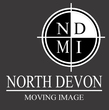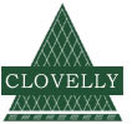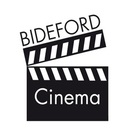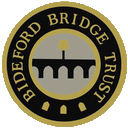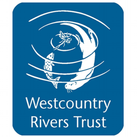| So to the famous show business adage ‘avoid working with animals or children,’ I’m adding ‘be wary of boats and tides’. But I will not be adding the fishermen – they couldn’t have been more helpful and generous with their time and open to what I was trying to do. We don’t have the budget to charter fishing boats or filming boats so when lobster fisherman Geoff Huelin agreed our film crew could come aboard on a working day to film life as it happened I was relieved and excited in equal measure. Letting us film him at work was the easy part for Geoff – I had a much harder challenge for this modest, unassuming, brilliant fisherman – I wanted him to tell his story in his own words –so no voice over – no presenter. I started out wanting to tell the story of Lundy’s marine reserve and no take zone –how it was the first in the country, how it was the fishermen themselves who helped set it up. The reward for encouraging the fishermen to tell their own story – is that Geoff gives us a unique take - revealing a fisherman, passionate about conserving the lobsters he is fishing –and so the film became ‘Lobster potting and the berried hens’. And as so many people said to me – Geoff is a natural – a total pro on camera! These short films are documentaries – yes I do research and plan them – yes I do know the story I’d like to cover – but even for a five minute film the story can change out on the water –and we go with what we get. The one thing I keep promising is that all our stories will be different. |
| For our second film ‘Salmon netting on the Taw & Torridge’ with ‘old age pensioners’ Sheila (76) and Stephen (84) I faced a different problem. Stephen Taylor is so knowledgeable, so eloquent on the history of salmon netting, the characters, so full of fascinating and funny anecdotes that it is difficult to get him to stop talking. I could have listened to him for hours but I needed him to tell the story in five minutes so the audience could follow what was going on. At the end of the shoot they were tired and wet after rowing the open boat and lugging the heavy net that after a short ‘piece to camera’ we had to ‘wrap’. I planned to return to film an interview about fishing techniques and history to help link the story together. But (the joy of working with radio mics!) watching the rushes Simon (the cameraman) and I found ourselves laughing out loud. I decided that it was more important to let their characters, their banter and their humour shine through rather than worry too much about the detail. If you haven’t seen it, take five minutes to watch a very funny, interesting little film. |
| The subject of our third story, Dave Gabe, is my local fishmonger and having taken my family on his boat trip up the river Torridge, the inspiration behind the series tag line ‘every boat tells a story.’ He was also extremely reluctant to be filmed on camera but off camera, I knew he had a fascinating story for every boat we passed along the river: it’s history – who sailed it – who had fallen in love and then broken up and left the boat abandoned to rot.. I warned our cameraman, Matt Biggs, before we sailed, that we would have to get the story out on location. As we passed each boat, I planned to draw out Dave’s own fascinating life story – a life spent working on many different boats working his way up from ‘deck boy’ on the tugs, to the deep sea trawlers, lifeboats, Lundy boatman and his own trawler out of Appledore . We couldn’t fit Dave’s story into five minutes – instead we mix in a bit of history and anecdote and wildlife as we follow the route the river takes us. On the rushes I can hear Dave saying, “no you don’t want to hear about me – the story’s about the river.” If you watch ‘Life’s Journey on the Torridge,’ I believe you’ll agree – our title may be boat stories – but our stories are about the people who sail them. |
| For our fourth film ‘Fishing for the Long Haul’ we had to spend much longer out at sea. I’d been warned when I was trying to get the series going that none of the commercial fishermen would let us film on their trawlers. So I was hugely grateful to Scott from S&P fisheries who agreed we could go aboard as long as we were prepared to spend several days out at sea in tough conditions. For me this film was the biggest learning curve –the hours fishermen work – the fickle nature of the fish and the sea –decisions whether and where to fish made at the last minute and every time they came into harbour a new regulation or ban awaiting them. After several weeks when filming was on then off, Paul Stone skipper of the Sparkling Star generously agreed to take us out squid fishing and to land our cameraman, Mark Brindle, back – along with the squid – after 24 hours provided we were ready to board at 2am in the morning. |
| No sooner had we got this film out – the herring run started in Bideford Bay. We went from filming 24 hours on a trawler to a couple of hours in a small open boat as Stephen Perham tells us on camera ‘we either row or we sail’. I wrote some articles on Clovelly several years ago, so I knew Stephen’s quest to revive the small herring fishery and get more local people eating herring would make a great short film. As Stephen says ‘it would be hard to find a more sustainable fishery’ and yet the way of life you witness in ‘Fishing for Clovelly Herring’ is also threatened by a ban. Detailing the complexities of the proposed EU ban on drift netting would have scuppered my five minute film –but in the video blog accompanying the film Stephen explains the reasons behind the ban and why Clovelly should be exempt. |
| Each film raises more questions than it answers and during each edit so much beautiful footage hit the cutting room floor or stayed on the hard drive! So for those who want to follow the stories in more depth, I’ve written a ‘the making of’ video blog around each film. Women feature in all the films we’ve released so far but save for the lovely Sheila (who almost has equal billing with Stephen) they are all led by men. The next two films we have in production are led by women! Our film of the Appledore ladies gig rowing crew was overtaken by the herring film (because herrings are only available until Christmas) but I like to think of it as our ‘sunshine and champagne film’ –memories of a lovely sun-kissed summer and champagne –well you’ll have to watch the film when it comes out early in the new year. |
| As for our other film –about Lundy island –thereby hangs a tale… Lundy is proof that Boat Stories wasn’t all plain sailing and of the fantastic support we’ve had from North Devon’s fishing and boating community. We travelled to Lundy on the Oldenburg as she is part of our story. We planned our main shoot with Beccy the warden, for the next day, when we had a generous offer from Andrew Bengey to film from his dive boat, Obsession. The day we arrived had the best sunshine forecast so Simon and I headed up the east coast, walking along the coast path to get a shot of the Oldenburg tied up at the Quay. The short of the long is that we lost our main film camera over the cliff! We were not on the cliff edge – it did not drop dramatically into the sea. But it did roll (Lundy is made of granite) and spill its guts – ending up as a mangled mess of electronics and plastic scattered and hidden under tall bracken. The team on Lundy and the boat skippers couldn’t have been more helpful. |
| While we tried to track down a spare camera, they tried to find a boat which could get it to the island. But the forecast was poor and the only boats braving the channel the next day were fishermen. Andrew offered to meet one of the potting boats out at sea – but the camera (from Dorset) would have to be driven through the night to catch the boat leaving at dawn and we wouldn’t receive it until a couple of hours before dusk. Reluctantly we decided to postpone the main scenes with Beccy and shoot what we could with our spare camera and Gopros. I took the opportunity to go swimming with the local seals -one was so friendly it swam right round the dive boat! But with the seals entering their breeding season and the first white-coated pups appearing on the beaches we decided to postpone until the Spring. Even with our little mishap, Lundy was a highlight in an event full year so a big thank you to Beccy and co for agreeing to have us back and the boating community for once again doing their best to help us! |
| One goal of Boat Stories was to work with local talented crews (rather than bringing film crews in from Bristol or London.) So I’ve had the privilege and pleasure of working with three different freelance cameramen who were all lovely to work with. They each like to work differently and have different styles and as you can see from their work they are all talented and together we make a successful team. So a huge thank you to Simon Vacher, Matt Biggs and Mark Brindle for also taking a punt on this project and helping to make it reality. If you are looking for someone to make a film, their details are on our crew page. Yet another target was to work with young or new talent and for every film we have found someone with a different style to create the music - so thanks to them for their enthusiasm and creativity and willingness to work on our tight budget. We’ve also taken young talent out with us on location on sound and camera throwing them into the deep end to help us cover events such as Appledore gig regatta or the Clovelly herring festival. The ‘deep end’ is probably not a good analogy for boat stories – only Matt came close to landing in the brink when ‘Locky’ from the Appledore Gig vets team gave him a piggy back and threatened to give him a dunking. I owe a huge thank you to our supporters and funders, listed below. Particularly to Amanda McCormack who agreed to host Boat Stories under the umbrella of North Devon Moving Image (NDMI) which she had only just founded when I first approached her and which has become a thriving community film-making organisation in little over a year. She was totally enthusiastic about my idea, but she did let slip as she waited for the first film to come off the production line ‘the whole project is just one big experiment’! |
| In the beginning, with the knowledge that anyone with a mobile or digital camera can make films it was difficult to explain boat stories – why it was needed –who would want to watch films of fishermen or working boats - how they would be different. Now I hope the films, blogs and the fact that we are revealing people who wouldn’t normally be on film or have a voice - speak for themselves. We welcome aboard new funders: the West Country Rivers Trust and the Clovelly estate and we are still looking for funders who would like to be part of Boat Stories and help match fund our next four films or final celebratory film show events. We have also received a huge amount of in-kind help from organisations like Lundy or Bideford Film Society. One of many unexpected delights of the year is the fact that Bideford Cinema show our films on their big screen before their main feature. Other organisations like Appledore Book festival, Petroc, Devon Maritime Forum and several local film societies have shown the films and Barnstaple Museum ran a special event and exhibition around the salmon film– a reminder that they are yours to show and share. Don't forget to follow us on facebook boat stories north devon or twitter @boat_stories for updates on new events and films. |
| So my final thank you goes to you the watchers and supporters for sharing and commenting on our films. The support, comments and enthusiasm have been fantastic and beyond my wildest imagination and kept me going! Please continue to show or share boat stories on social media or send the link to people outside of North Devon. It’s always difficult to watch your own work but for the first time over Christmas, I sat still and watched all five films together with family and visitors. The response was rewarding and it’s lovely to see how everyone has a favourite and everyone champions a different film! Which leads me to our final films. I have about ten ideas for the remaining three stories but if there’s a story you think we should be filming we’d love to hear from you. We’re looking for interesting people who have fascinating stories to tell. The story must be set in North Devon, feature a working or heritage boat and it must be filmic. By that I mean we want to get out and film an active story on location –on the water! And we’ll do our best to keep up the standard. |

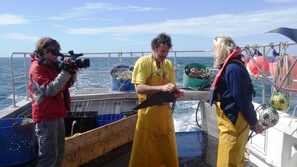
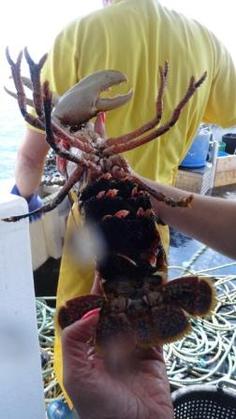
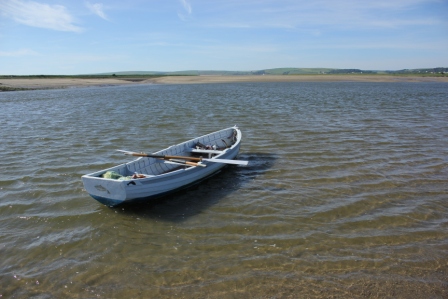
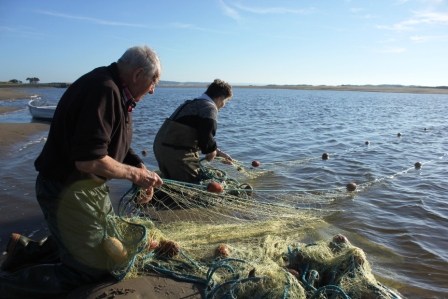
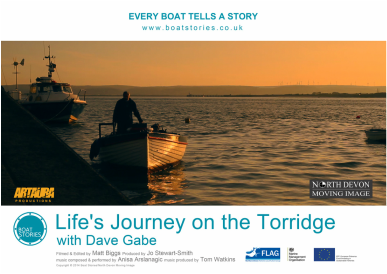
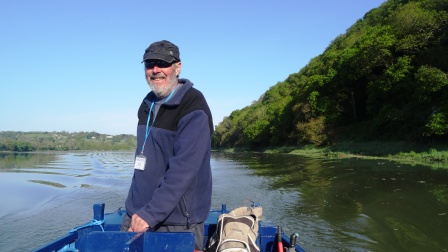
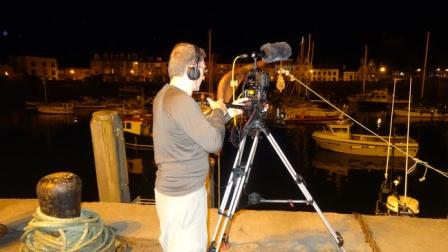
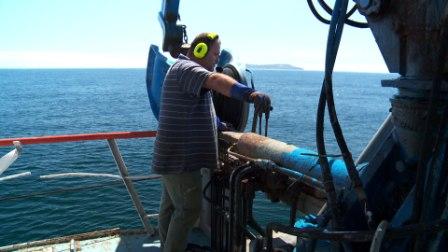
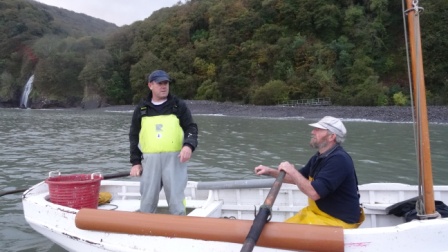
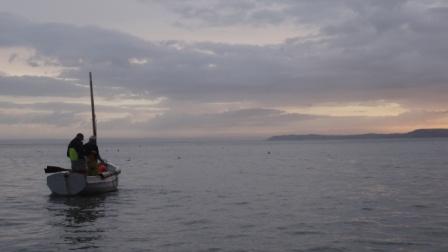
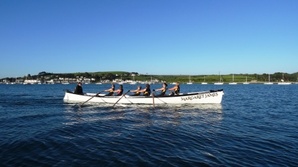
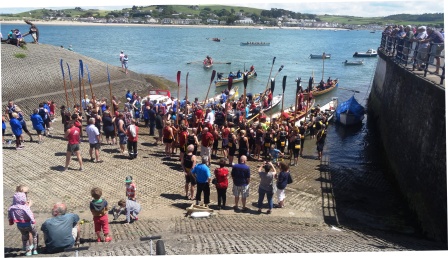
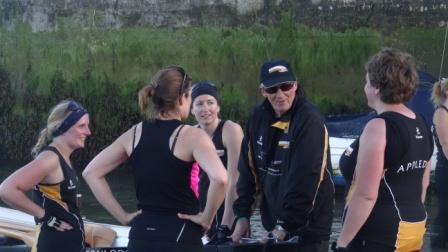
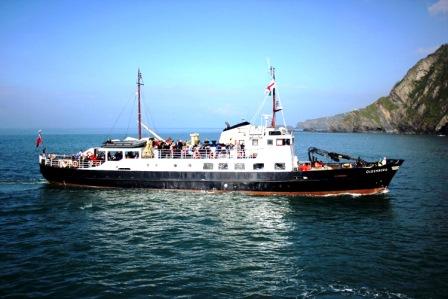
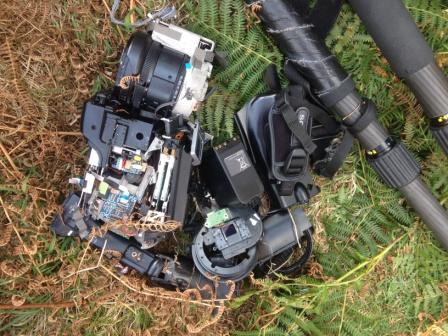
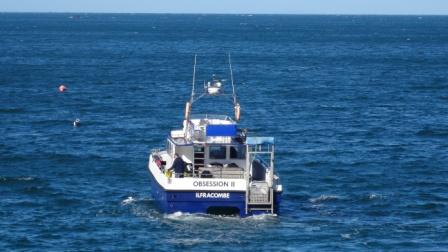
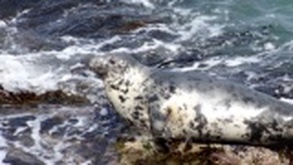
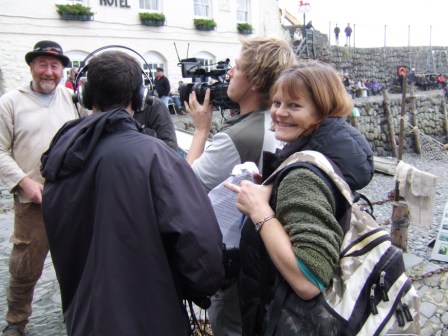
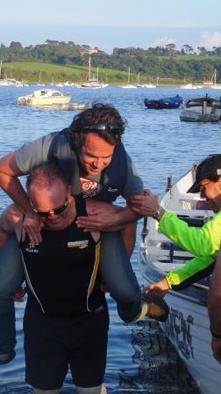
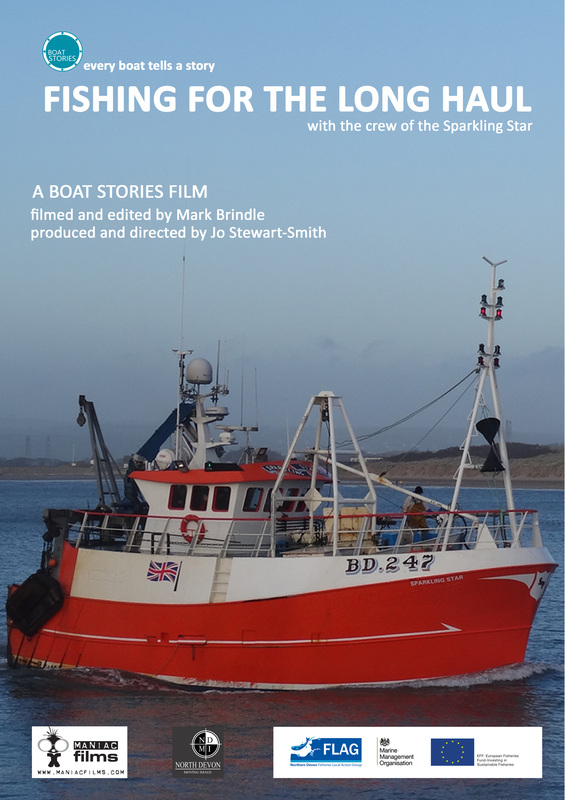
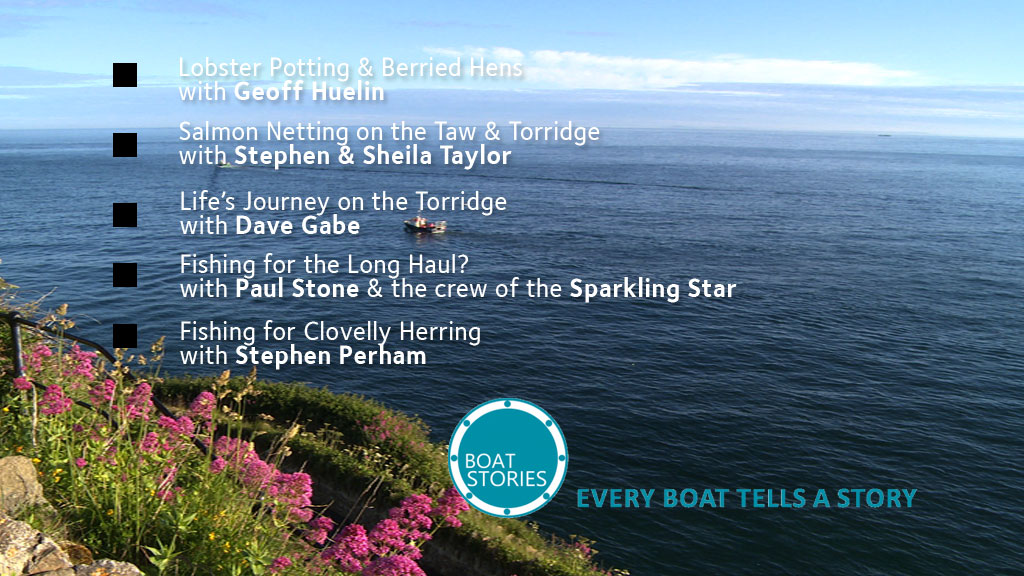
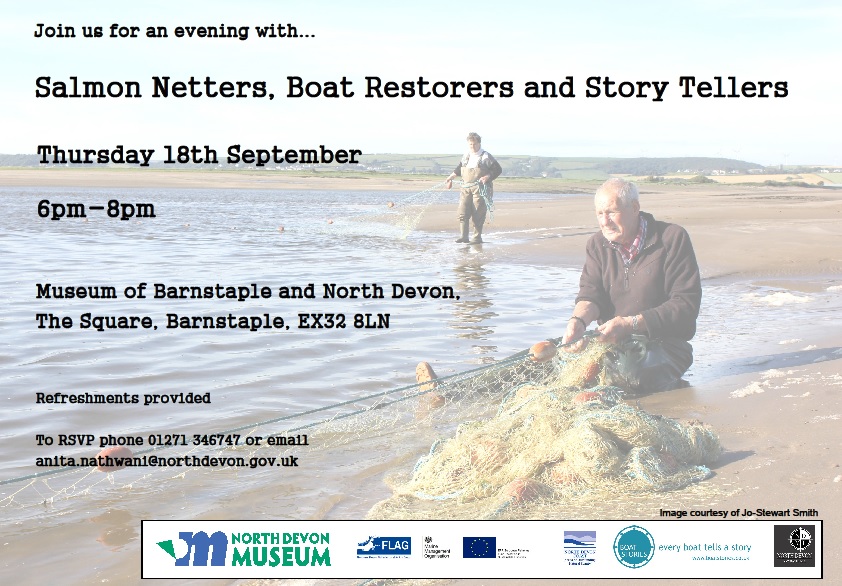
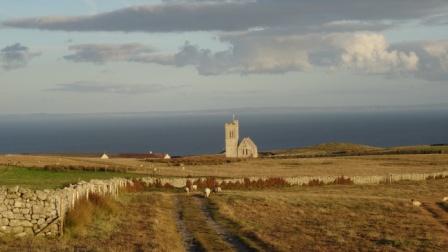
 RSS Feed
RSS Feed


